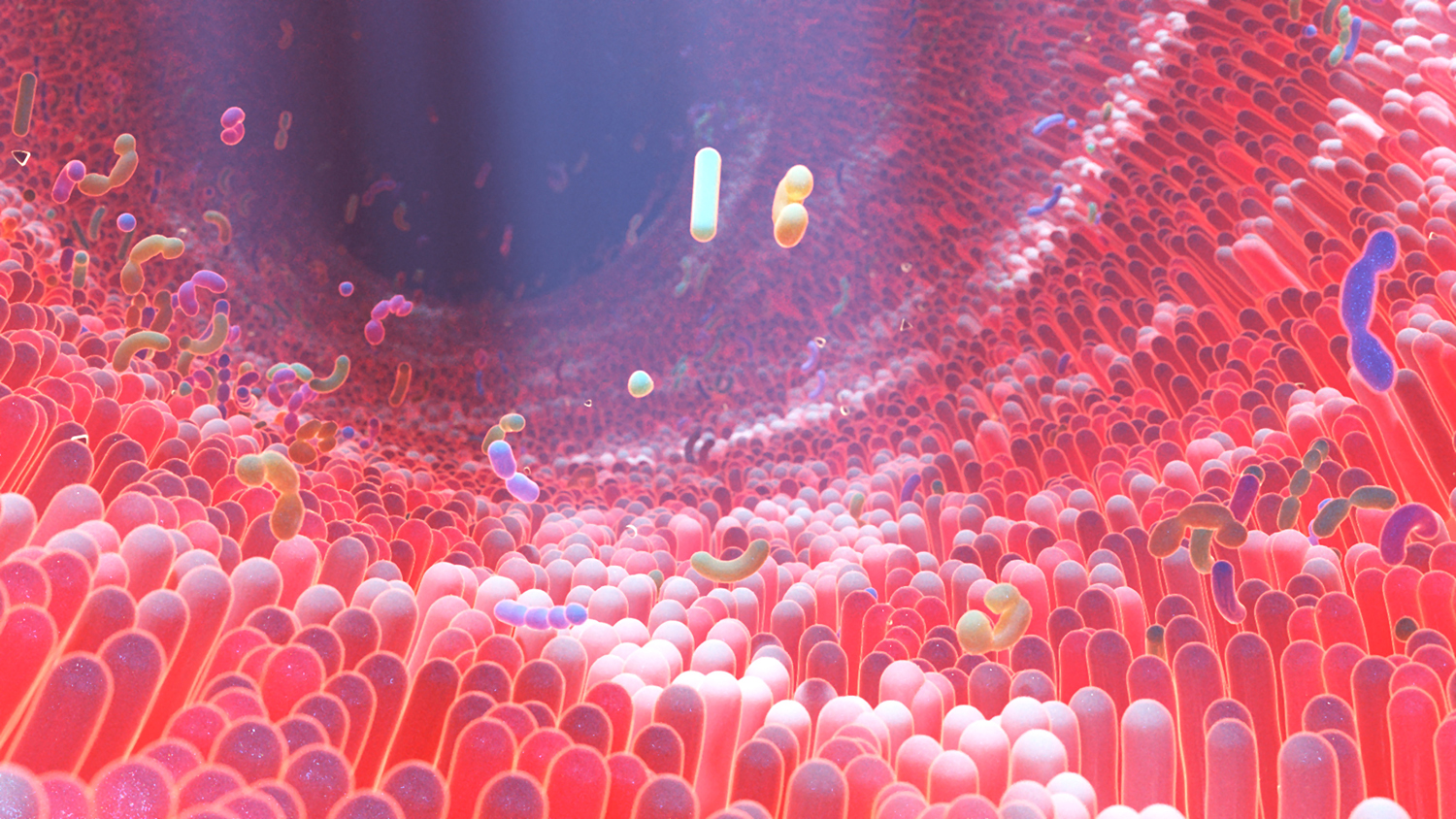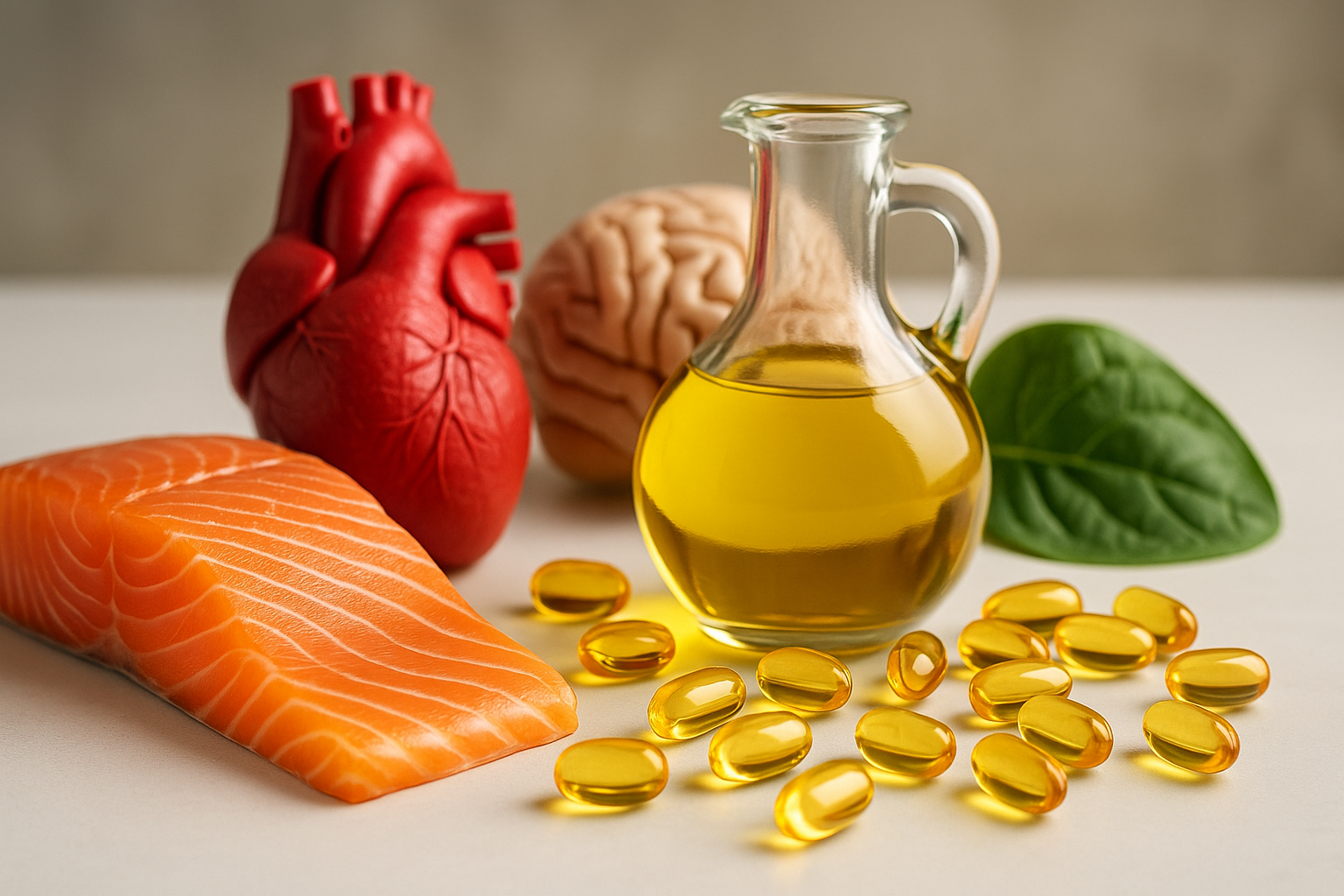
A healthy intestinal flora is the source of health and well-being. If it is in balance, it has many positive effects on our body, our emotions and our fitness.
With its surface area of 400 square metres, the intestine is one of the marvels of the human body. Its eight-metre-long loop system filters out vital components from food and the intestine shares most of the digestive work with the stomach. The stomach pumps the partially already digested food pulp into the intestine, and while bacteria are destroyed in the stomach and the small intestine contains only a few of these microorganisms, the number of digestive bacteria increases towards the end of the intestine. In the upper sections of the small intestine, up to 1000 bacteria are found per millilitre of intestinal content. In the large intestine, this concentration rises to 100 trillion. All these bacteria in the intestine, also called intestinal flora, diligently digest what we consume in the course of our lives.
"A healthy intestinal flora therefore makes an essential contribution to a healthy general condition. And that is why we have to take special care of our intestinal health. After all, it can stimulate the body's immune system," says Natura Vitalis founder Frank Felte (www.naturavitalis.de). The company from Essen has long been considered one of the leading manufacturers of natural food supplements and places the highest value on continuous further and new developments of health products on a scientific basis.
The problem: If the intestinal environment is out of balance, we quickly feel sick and tired, and our defences are weakened. An unhealthy lifestyle and some foods contribute to such a weakening of the gut. Especially sugar, unhealthy fats, convenience foods, a number of artificial food additives and pesticide residues in food cause a lot of trouble for our intestinal flora. Just like antibiotics, fluorides and chlorine, these have a negative effect on the beneficial intestinal bacteria and can lead to chronic hyperacidity. The result: our performance decreases, we feel low on energy and become far more susceptible to illness.
"If the intestinal flora gets out of balance, pathogenic microbes get a chance to multiply and cause damage. If the body is not able to restore the balance, inflammatory processes can become chronic and diseases can develop that do not only affect the intestines. These diseases even have nothing in common at first glance and range from depression, anxiety and learning difficulties to allergies and diabetes," explains Frank Felte.
So intestinal health has a high priority when it comes to our health, fitness and a long life. Doctors have found out that a disturbed microflora is present in all human diseases. Thus, it is important for good health to regulate the intestinal flora. To achieve this, you should eat fresh and home-prepared meals as often as possible. If you also give preference to organically grown food and include enough vegetables, fruit and probiotic foods in your diet, you will be helping the intestinal flora in a positive way.
Lactobacilli and bifidobacteria, among others, are crucial for an intact intestinal flora. That is why they probably have the largest share in the intestinal flora. Psyllium husk powder and the mineral clay bentonite also help to maintain the health of the intestinal flora. To build up the intestinal flora, a diet that is rich in vital substances, minerals and fibre, but largely avoids sugar and also contains only moderate amounts of animal proteins, is particularly suitable. Then lactobacilli and bifidobacteria feel right at home and like to multiply.
The Natura Vitalis product "Lacto-Flora 8" contains exactly these types of bacteria. "Each individual capsule contains six billion pure, living bacteria from eight different bacterial strains! These immensely important bacterial cultures are packaged in a gastric juice-stable cellulose capsule so that they are not destroyed by the aggressive stomach acid and can thus safely reach the intestine," emphasises Frank Felte.
This text
may contain translation errors as the translation was done by an online
translation tool.










